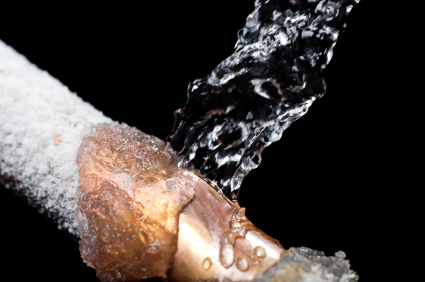In extremely low temperatures, many residents find that the water lines in their homes had frozen and they are faced with a potential costly repair scenario, which can reach thousands of dollars when those frozen lines thaw and lead to burst pipes. Once water lines in homes burst, they definitely need to be replaced. In addition to that, they can also create water damage in the home.
This is why homeowners should do a better job of preventing the problem of frozen water lines. Homes can be protected from the damage of burst pipes in the future by keeping the following tips in mind.
Leave Faucets Open Slightly
If you’re expecting cold weather, open your faucets a little to allow water to trickle. When water is moving, it takes a lot more time for it to freeze as opposed to standing water. By letting water trickle down the faucet it will run through the pipes continuously, which can help keep water from freezing.
Additionally, when you leave your faucets open just slightly, it will release any pressure in the pipes between a frozen spot and the faucet. This can also help prevent burst water lines in homes. The only thing you have to remember is to inform your household members that you are intentionally letting the faucets drip so that no one will mistakenly turn off a tap.
Leave Sink Base Cabinet Open
Leave your sink base cabinets ajar to allow warmer air inside the kitchen to circulate throughout the inside of the cabinet. Doing so will help the warm air get into the pipes, particularly if the pipes are located outside the wall. You can also put a small portable heater inside the cabinet or near it to help warm the pipes.
Insulate the Pipe
Insulating the pipe or pipes that can cause the potential problem is another preventive trick. You can use electrical heat tape to wrap the pipe/s or insulate them using foam insulation wrap. The latter is ideal for pipes that are located in spaces without heating such as the attic, crawlspaces, basement, or garage.
Additionally, you can also place a heater in these areas. You don’t have to keep these spaces toasty as long as the temperature is just above freezing, then it will help prevent the pipes from freezing.
Having Problems with a Frozen Pipe?
In wintry weather, the first sign of frozen water lines in homes is when there’s no water coming out of the faucets. Oftentimes, you can thaw a frozen pipe before it bursts, so call a plumber quickly when you encounter this problem to minimize damage and costs. Seva Call can get you connected with local reputable plumbers in no time. Contact us now.





